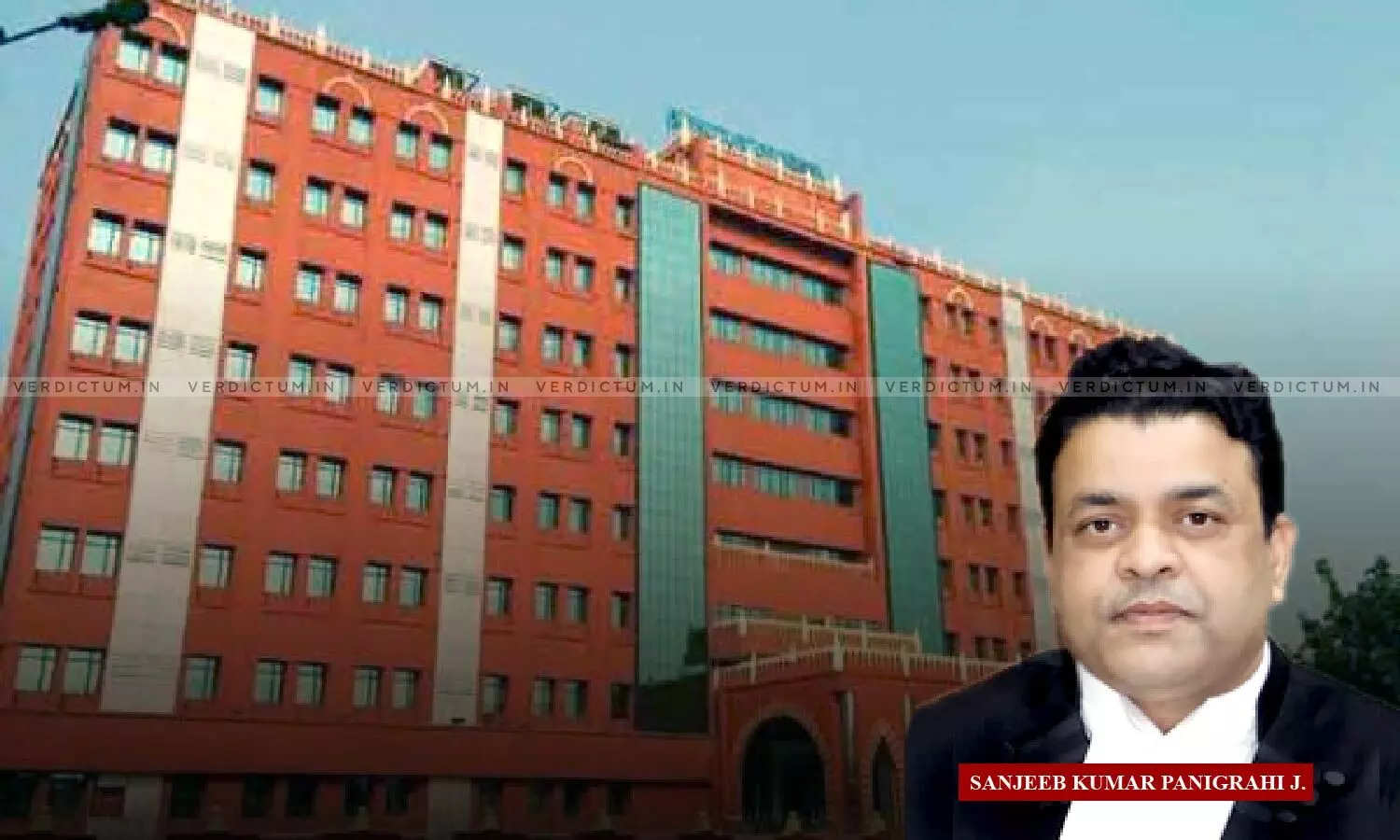
Justice SK Panigrahi, Orissa High Court
Orissa High Court Appoints Wife As Legal Guardian & Representative For Husband In A Vegetative State Despite Absence Of Such Legislation
 |
|The Orissa High Court addressed the absence of specific legislation governing the appointment of guardians or representatives for individuals in comatose.
The Orissa High Court has allowed a wife seeking to be appointed as the legal guardian and representative of her husband, who is in a comatose or vegetative state.
The Court addressed the absence of specific and comprehensive legislation governing the appointment of guardians or representatives for individuals in a comatose or vegetative state. The Court recognised a wife's role in Hindu tradition as ‘Ardhangini’ or the other half, emphasising the spiritual and equal partnership in marriage.
A Single Bench of Justice SK Panigrahi held that “recognizing the wife as the guardian of her husband in a comatose or vegetative condition is not only consistent with statutory principles and constitutional values, but also resonates deeply with cultural ethos and time-honoured traditions that venerate the marital bond as one of unity, duty, and mutual guardianship.”
Advocate Soumya Sekhar Parida appeared for the Petitioner, while CGC Sulochana Patra represented the Respondents.
Brief Facts
The Petitioner (wife) had filed a Writ Petition seeking a direction from the Court to appoint her as the legal guardian/representative of her husband, who is presently in a comatose or vegetative state, with no prospect of revival, rendering him physically incapacitated and unable to communicate or make decisions.
Court’s Reasoning
The High Court stated, “Now, in the absence of specific and comprehensive legislation governing the appointment of guardians or representatives for individuals in a comatose or vegetative state, the judiciary has frequently been confronted with complex situations concerning the management and administration of properties owned by such incapacitated persons. The legal vacuum in this area has resulted in a lack of uniformity and predictability, thereby compelling courts to adjudicate these sensitive matters on a case-by-case basis. In doing so, the courts have had to rely on constitutional principles, equitable considerations, and the broader intent of personal and proprietary rights to arrive at just and pragmatic solutions in the interest of the incapacitated individual.”
However, the Bench also noted that the “guardianship of the husband cannot be granted to the wife solely on the basis of cultural or religious considerations. It is incumbent upon the Court to examine the matter within the framework of law and determine the question of guardianship in accordance with legal principles and statutory mandates.”
The Court pointed out, “Given this legislative gap, and recognizing the urgent need for financial and medical decisions to be made in the best interest of the incapacitated individual, the Court has no alternative but to invoke its extraordinary jurisdiction under Article 226 of the Constitution of India.”
“The silence of the statute cannot become a justification for denial of relief when the life, dignity and welfare of an incapacitated person are at stake. In such exceptional situations, the Court must rise above procedural formalities and act in furtherance of justice by invoking its constitutional jurisdiction in a manner that safeguards the rights of the most vulnerable. This duty finds expression in the doctrine of parens patriae which allows Constitutional Courts to step in as the ultimate protector of those who cannot speak or act for themselves,” the Bench held.
Consequently, the Court ordered that “the Petitioner is entitled to be appointed as the legal guardian and representative of her husband, who is in a persistent vegetative state and incapable of managing his affairs…appointed as the legal guardian and representative of Mr. Suresh Kumar Epari, with full authority to manage all his personal, financial, legal, medical, and business matters, including compliance with statutory obligations.”
Accordingly, the High Court disposed of the Petition.
Cause Title: X v. Ministry of Health and Family Welfare & Ors. (W.P.(C) No.24656 of 2024)